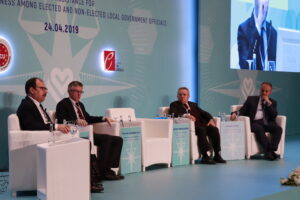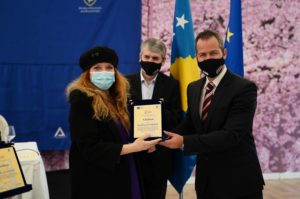
Technical Assistance for Implementation of Civil Society Dialogue and Civil Society Support Programmes (TR2015/DG/01/A5-01/001)
The overall aim of the project is to increase bilateral exchanges and cooperation between CSOs in Turkey and the EU at local, regional and national levels, to promote awareness raising initiatives on importance and benefits of membership of Turkey to the EU within Turkey and EU and on

Ministry of Development Training Programme
Organisations need technical assistance with funds and areas like good management practices; monitoring reports; training programmes on monitoring and evaluation; objectives and indicators, etc. Therefore, the project aimed to provide technical assistance to the Ministry in the field of fund management to the Standing Committee for Economic and

Technical Assistance for Prevention of Corruption and Promotion of Ethics
Despite the OECD’s assessment that Turkey has made significant progress since 2007 in its efforts to combat corruption, the issue continues to represent an obstacle to economic and social progress and, potentially, to greater integration with the EU. The overall objective of the project was to contribute to

EU Support for the Competitiveness of Kosovo’s ICT Sector
This initiative’s overall objective is to enhance the competitiveness of Kosovo’s digital and traditional businesses by supporting the growth of Kosovo’s Information and Communication Technology (ICT) sector, paving the way for growth and new job creation. The project aims to bridge the digital and business skills gap in

Technical Assistance for Samsun Logistics Centre
The project was conceived, Turkey’s logistics network ranked 30th worldwide but offered much potential for improvement. With its strategic Black Sea location, seaports, airport and access to national rail and road networks, the Turkish city of Samsun was viewed as being in an excellent position to create a

Technical Assistance for Promoting Social Inclusion in Densely Roma Populated Areas
It’s an obvious fact that there is a need to increase social inclusion in heavily populated areas, particularly in Rome, mainly by facilitating their entrance into the formal labour market. Within this context, the project aimed to support Rome’s population by improving the quality of education delivery, vocational

